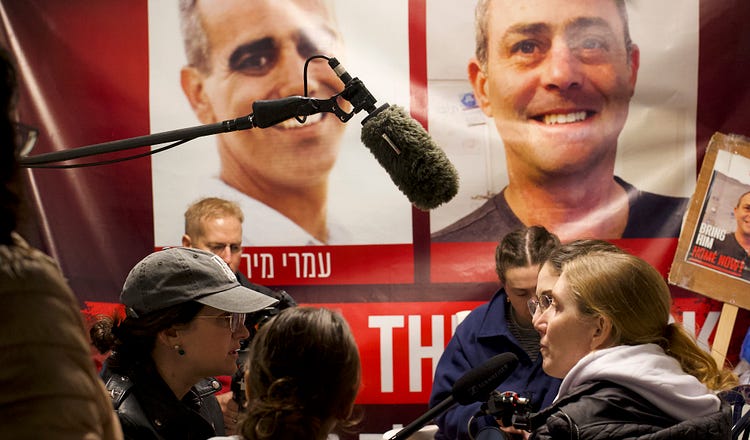Binge Our Miniseries: The Free Press in Israel

Bari and The Free Press team during their trip to Israel in January.
Don’t miss our special three-part audio documentary report from the front lines of the war.
54
If you’ve been paying attention to the Honestly feed recently, you’ve probably noticed that we’ve been doing something different. Instead of our weekly interviews and debates, the last three weeks have been filled with our “Free Press in Israel” series: a special three-part audio documentary report on our time in Israel earlier this year.
And if you’ve b…
Continue Reading The Free Press
To support our journalism, and unlock all of our investigative stories and provocative commentary about the world as it actually is, subscribe below.
$8.33/month
Billed as $100 yearly
$10/month
Billed as $10 monthly
Already have an account?
Sign In


